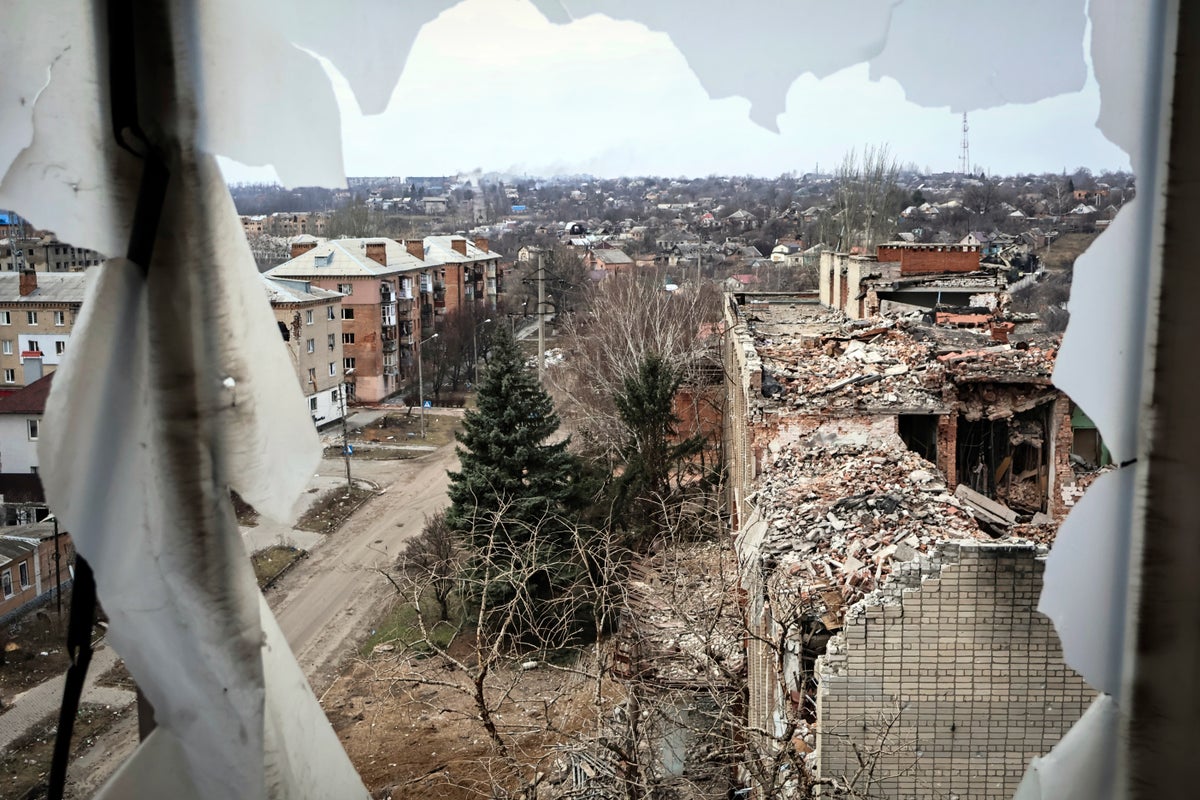
Russian attacks against civilians in Ukraine, including systematic torture and killing in occupied regions, amount to war crimes and possibly crimes against humanity, according to a report from a UN-backed inquiry.
The sweeping human rights report, released a year to the day after a Russian airstrike on a theater in Mariupol killed hundreds sheltering inside, marked a highly unusual condemnation of a member of the UN Security Council.
Among potential crimes against humanity, the report cited repeated attacks targeting Ukrainian infrastructure since the fall that left hundreds of thousands without heat and electricity during the coldest months, as well as the "systematic and widespread" use of torture across multiple regions under Russian occupation.
Based on more than 500 interviews as well as satellite images and visits to detention sites and graves, the report found that some 16,000 children have been unlawfully transferred and deported from Ukraine, citing a Ukraine government figure. Russia denies the charge, saying it has evacuated people voluntarily from Ukraine.
The investigation also found crimes committed against Ukrainians on Russian territory, including deported Ukrainian children who were prevented from reuniting with their families, a "filtration" system aimed at singling out Ukrainians for detention, and torture and inhumane detention conditions.
Some children were forced to watch their loved ones raped or, in one instance, detained in a school basement alongside the bodies of the deceased, according the report said. Victims in Russian detention facilities were subject to electric shocks with a military phone - a treatment known as a "call to [Russian President Vladimir] Putin," it said.
"There were elements of planning and availability of resources which indicate that the Russian authorities may have committed torture as crimes against humanity," said Erik Mose, a former Norwegian Supreme Court and European Court of Human Rights judge who led the investigation.
A commission of inquiry is the most powerful tool used by the UN-backed Human Rights Council to scrutinise abuses and violations around the world. The investigation released Thursday was set up during an urgent debate shortly after Russia's invasion last year.
The commission's three members are independent human rights experts, and its staff gets support and funding from the council and the U.N. human rights office.
The report's authors noted a "small number" of apparent violations by Ukrainian forces, including one they said was under criminal investigation by Ukrainian authorities. The Ukrainian presidency was not immediately available for comment.
However, the investigators reserved the vast majority of their report for allegations against Russia. At her weekly press briefing, Russian Foreign Ministry spokeswoman Maria Zakharova told reporters that Moscow regularly heard accusations like these.
She added that if those behind such reports supported objectivity "then we are ready to analyse specific cases, answer questions, provide data, statistics and facts. But if they are biased, if they represent only one point of view ... then there is no use responding to these reports."
Russia denies committing atrocities or attacking civilians in Ukraine.
Most of the abuses highlighted by the investigation were already well known, and the report is far from the first to accuse Russia of war crimes. However, the inquiry's findings come with the imprimatur of the international community: The experts work under a mandate overwhelmingly created last year by the Human Rights Council, which brings together the governments of 47 UN member countries.
Mose, who served as president of an international tribunal established to prosecute genocide cases from the massacre of members of Rwanda's ethnic Tutsi minority in 1994, said investigators have created a list of individuals to hold accountable for human rights violations in Ukraine.
He said the list would be "submitted to the relevant authorities in this issue," but the team acknowledged the difficulty of investigations involving a permanent member of the UN Security Council.
Ultimately, the report may add to efforts to boost accountability for crimes committed in the war — whether by the International Criminal Court or by some individual countries that have taken on the right to apply "universal jurisdiction" to prosecute atrocities, wherever they may take place.
Reuters contributed to this report







